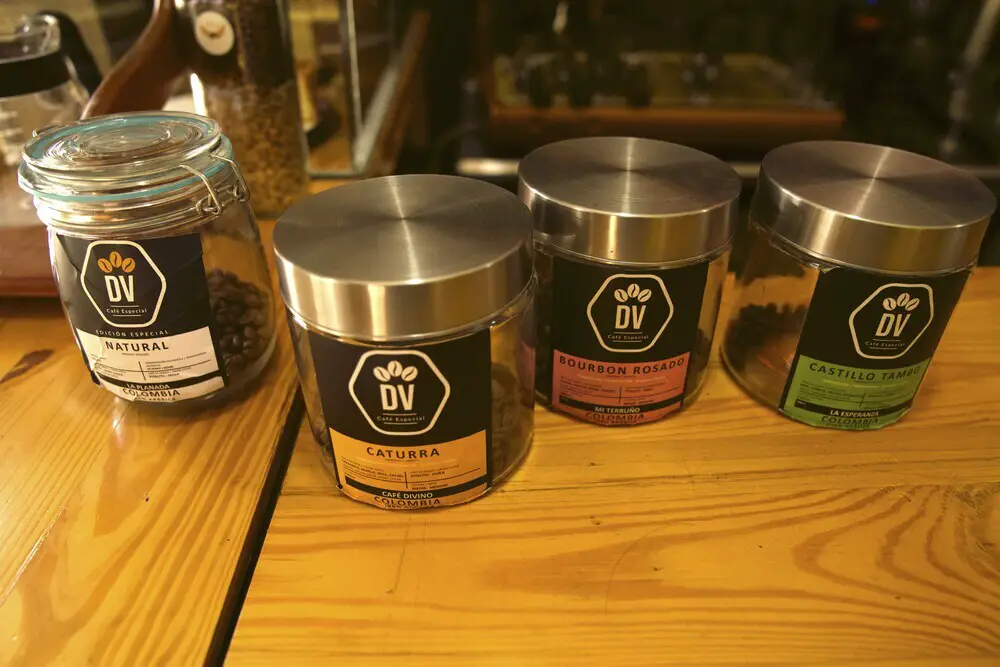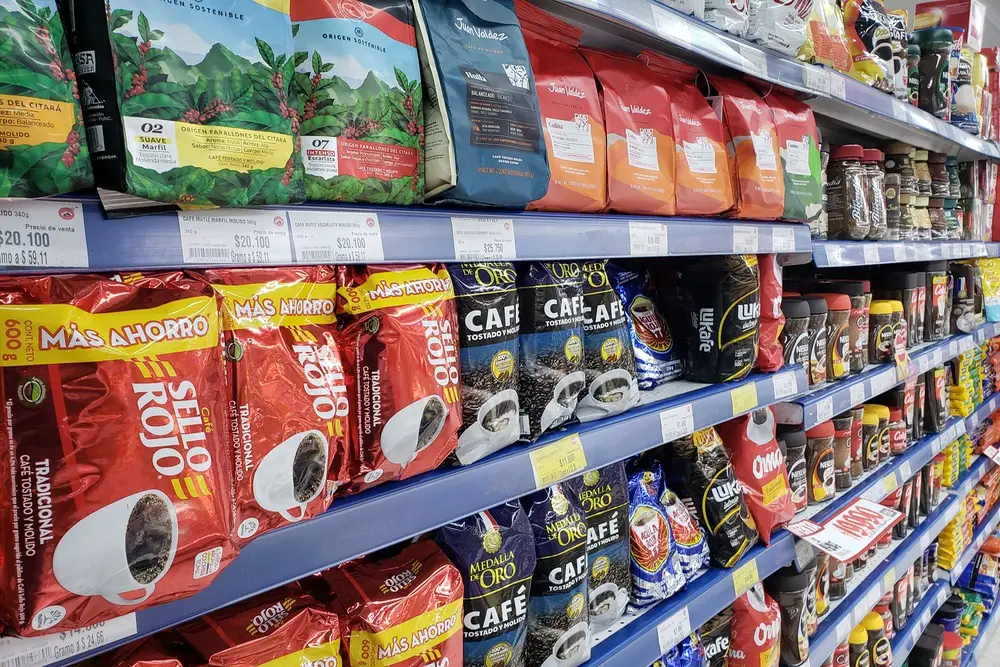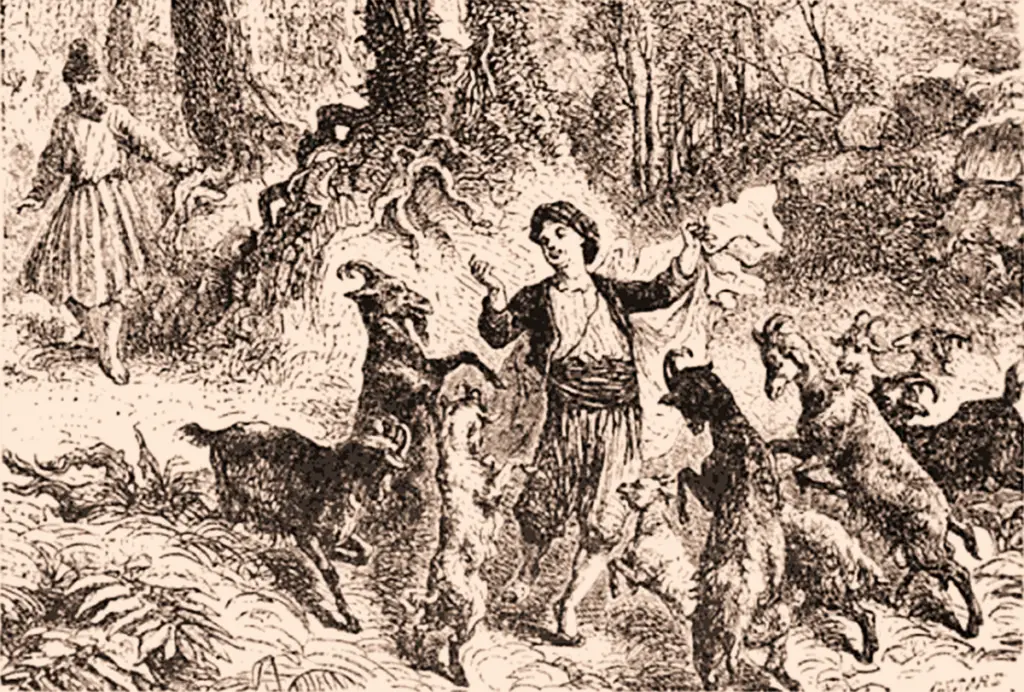Freshness is the be-all and end-all for a good cup of coffee. Experts agree that coffee should be consumed as soon as possible after roasting.
They also agree that one of the best ways to preserve coffee beans is by freezing.
Table of Contents
Why Freeze Coffee Beans?
Freezing preserves the flavor better
Freezing food is an excellent way to preserve flavor and prevent spoilage.
Why freezing with coffee works?
As with most foods, coffee is subject to an aging process. Especially after roasting, beans should be consumed within a few weeks. After that, the coffee starts to lose its taste.
After a few more weeks, coffee can also go rancid due to the oils in the coffee.
So, under optimal circumstances, you will brew the coffee within the first few weeks of roasting.
The best way to keep coffee longer is to freeze it. Freezing preserves the flavors of the coffee beans and keeps the coffee in the same state it was just before freezing.
Grind frozen coffee beans
Freezing the beans and grinding them while frozen results in a more even particle size distribution. Subsequent extraction is therefore more regular. Grinding frozen beans can therefore be recommended.
How do you properly freeze coffee beans?
Roasted coffee beans in the freezer
Factors such as heat, light, oxygen and humidity significantly alter the quality of the coffee. This is because they break down the organic cell structures of the beans, altering the moisture levels and allowing bacteria to grow. As a result, the coffee loses its flavor and freshness, which affects its quality and shelf life.
The MTPAK media mentions George Howell, the founder of George Howell Coffee in Boston. George began freezing coffee about 20 years ago and remains a staunch advocate of this method of preserving or preserving coffee’s best qualities
“I’ve found that coffee loses a lot of its dimensionality within a day of opening a bag after being exposed to oxygen,” he explains. “You can’t just put it in a container and remove the oxygen like you would with wine; the carbon dioxide comes out of the fresh coffee and breaks any vacuum seal you started with.”
“Freezing the coffee, on the other hand, stops all interactions immediately.”
The main reason for freezing coffee is that it prevents oxygen from entering the cellular structure by slowing down the rate of degassing.
When the coffee is roasted, the beans absorb a lot of carbon dioxide (CO2) and release it again over the next few days, which changes both the taste and the quality of the coffee beans.
Researchers conducted a study on the effects of freezing coffee and found the following:
- Storing the beans at sub-zero temperatures extends the shelf life and freshness of the coffee from three months to one year.
- Freshly roasted coffee stored at a temperature of -25°C significantly reduces the coffee degassing rate.
- This stops or slows down the cellular activity of the coffee particles, allowing the coffee’s maximum flavor to be captured and frozen, preventing the coffee from going rancid.
Freezing green coffee beans?
Although freezing roasted coffee beans is a common practice, sub-zero storage of green coffee is a recent trend.
The first thing to note is that green coffee is classified as hygroscopic, meaning it can easily absorb moisture, including from the atmosphere. It is therefore important to store it in a dry and cool place and to keep it away from strong odors, as these can otherwise penetrate the coffee and the coffee will artificially take on this aroma.
Studies by the Department of Chemistry and Biochemistry at the University of Oregon on the effects of temperature on coffee quality and extraction say the following.
“For every 10°C you cool an object, most processes slow down,” the article says. “Chilling the coffee should therefore prevent the chemical reactions that occur over time (such as rancidity or aging) and extremely slow them down”. says Dr Christopher Hendon.
In addition to preserving the freshness of the green coffee, freezing the beans also has the potential benefit of improving the quality of the finished cup.
A study on freezing green coffee conducted at Dedan – Kimathi University in Kenya found that the cup quality of frozen coffee was better than that of coffee stored at room temperature.
Nancy Warui is a certified Q Grader and was present at the tasting of these frozen green samples.
“It’s all a question of science,” she explains, “at such low temperatures, the activities in the bean slow down a lot, which keeps the coffee fresh.”
The green coffee was stored in perforated bags (similar to jute bags) and placed in the freezer immediately after threshing. The freezer was free of odors and other contaminants that could affect the quality of the beans.
Airtight container
- Use an airtight container or bag (or several) to vacuum. Many packages or containers still let small amounts of air through, but we need absolutely leak-proof packaging.
- Divide the coffee into small portions. Due to the portioning, only the amount of coffee that is actually consumed is defrosted.
- Put everything in the freezer.
- Important: When you take the coffee out of the freezer, do not open the packaging! Allow the beans to fully thaw at room temperature before opening the bag/container.
You can also check our blog about how store coffee!
Vacuum sealing
Vacuum sealing is considered the preferred standard for freezing coffee beans. Using a vacuum sealer allows all air to be removed from the bag, preventing ice crystal formation and oxidation.
Vacuum sealing is also very flexible. Depending on the size of the bag, you can freeze anything from a single 12-gram serving to a pound.
The main disadvantage is that you have to buy the vacuum sealer and the bags.
Freezing with the original bag
Another classic method of freezing coffee is to use the bag it came in. This makes a lot of sense as these bags are often sealed. They already provide a protected environment for the coffee beans, and storing them in the freezer slows down aging even further.
How not to freeze coffee beans?
Coffee should not be left open in the freezer. You should also not mix the coffee with other foods. The formation of condensation must also be prevented, as coffee will eventually absorb it and the taste will be distorted.
How long should coffee stay frozen?
Some studies have shown that one day at room temperature is the same as over 200 days in the freezer. Coffee can therefore remain frozen for a long time.
Myths about freezing coffee beans
Oxygen and coffee
When you expose coffee beans to oxygen, the decay process begins. Almost all coffee roasters take this into account and package their coffee in a way that minimizes the effects of oxidation.
In theory, vacuum packing the beans should extend their shelf life, but I’ve found that storing coffee in a sealed container with a minimal footprint has almost the same effect.
Conclusions
Freezing coffee is a great way to keep coffee fresh. As long as you pay attention to certain aspects, nothing can go wrong here.



